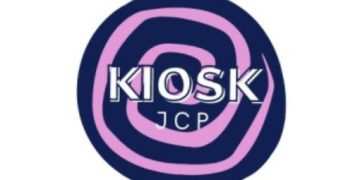Whether you’re a writer or a reader, it’s a good idea to learn how to use the saurus synonyms in your writing. When you use the right synonyms, your writing will have a much more sophisticated look. It’ll also be easier for people to understand your meaning.
Macmillan Thesaurus
Using a Macmillan Thesaurus is a great way to learn about synonyms and related words. The website contains a slew of interesting content, including an automated word-spelling robot. In addition to the dictionary, users can browse a variety of other useful resources, including audio tracks and a comprehensive encyclopedia.
The Macmillan Thesaurus is also notable because it is one of the few thesauruses on the market that is free. Designed by lexicographer Diane Nicholls, this is a highly impressive resource. The Macmillan Thesaurus contains entries for every word in the Macmillan dictionary. In addition, each entry includes a related word, phrase, or acronym.
One of the most impressive features of the Macmillan Thesaurus is that it is also highly searchable. This means that users can explore the connections between words and phrases without leaving their computer.
Roget’s Thesaurus
Whether you’re a crossword puzzle enthusiast or you just need a new word to describe an idea, Roget’s Thesaurus of Synonyms and Antonyms can help you. This classic dictionary of synonyms and antonyms was created 150 years ago by British physician and lexicographer Peter Mark Roget. It is considered to be one of the most influential thesauruses of the nineteenth century, and continues to be a widely used English-language thesaurus.
The first edition of Roget’s Thesaurus was published in 1852, and featured 1,000 headings. Each of these headings was classified according to Roget’s classification system. The system was based on natural history classifications, and grouped words into families and categories.
Roget’s system also included phrases that were synonymous with single words. For example, “that man is curious” is a common antonym of “that man is behaving in a curious way.” The 1852 edition was the first to feature an alphabetical index, allowing readers to find the word they want.
Free Thesaurus
Using an online thesaurus can be very useful. It helps you learn new words, find synonyms, and keep your dictionary updated. It also adds a touch of flavor to your personal dictionary.
The Free Thesaurus is a comprehensive online thesaurus that provides synonyms for hundreds of thousands of words. Users can explore words across different domains and even filter by part of speech. The site also offers a visual presentation of each word. The entries are grouped by their meaning, and are distinguished by color. This makes it easy to find the closest words in the thesaurus. You can even save your favorite words as bookmarks.
Another useful online thesaurus is WordHippo. This site provides synonyms, antonyms, and translations, along with pronunciation lessons. It is available through a web browser or mobile apps.
Collocations Thesaurus
Using a thesaurus is a great way to improve your vocabulary. A thesaurus is a database of words and their related etymologies. You can use the thesaurus to make parse filters, identify the most logical words, and find synonyms.
One way to make the most of a thesaurus is to use it in combination with an online thesaurus. An online thesaurus will allow you to see synonyms, antonyms, and synonyms a la carte. An online thesaurus may be useful to English language learners who are trying to improve their vocabulary.
The best way to use a thesaurus is to make notes of words that collocate with others. Collocations are often overlooked by non-native English speakers, but they are often the building blocks of natural-sounding English.
Wikidata
Originally known as Wikisaurus, the Wiktionary Thesaurus is a dictionary of antonyms and synonyms. It also includes hyponyms, near-antonyms, and hypernyms.
The Wiktionary Thesaurus is a subproject of the Wiktionary wiki. It is a dictionary of antonyms, synonyms, and meronyms.
The Wiktionary Thesaurus was originally called Wikithesaurus. It was first published in 1911. Aside from antonyms and synonyms, it also included words like sum-of-parts phrases.
The thesaurus is based on a WordNet model. The resulting semantic network of unique concepts and relationships makes it possible to perform queries and browse items. It is also a valuable tool for wiki authors, bloggers, writers, and other users.
The Wikidata project aims to create an international community that can share data. It provides a data repository with more than 2,500 identifiers and links to external data. It is also a linked open data knowledge graph. This data is important for documenting cultural assets and for describing cultural relationships.




















































